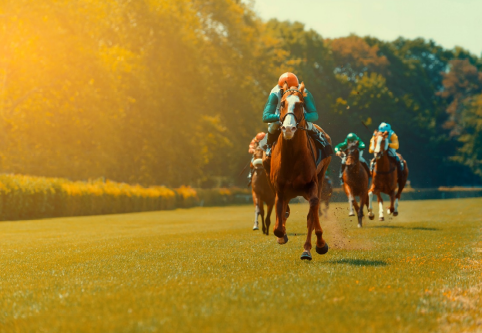Competitive horse riding is not merely a physical feat; it is a delicate dance between rider and horse that requires a sharp mind, unwavering focus, and mental resilience. The arena is a battleground of physical skills and a testing ground for the rider’s mental fortitude. In this exploration, Freddie Vasquez Jr. delves into the crucial aspect of mental preparedness in competitive horse riding and unveils strategies for success that extend beyond the stables and into the realm of the mind.
Understanding the Mental Landscape
Competitive horse riding demands more than technical proficiency; it requires riders to navigate the complex terrain of their thoughts and emotions. The mental landscape of an equestrian athlete is often characterized by a combination of excitement, nervousness, and the innate desire to perform at one’s best. Understanding this mental landscape is the first step toward building a foundation for success.
Goal Setting and Visualization
Setting clear, achievable goals is a cornerstone of mental preparedness. Riders benefit from establishing both short-term and long-term goals, whether it’s mastering a specific technique, improving overall performance, or achieving a competitive milestone. Visualization techniques come into play here – mentally rehearsing successful rides enhances confidence and creates a positive mindset.
Overcoming Nervousness and Anxiety
Nervousness is a natural emotion in any competitive endeavor, but managing it effectively is key. Riders can employ techniques such as controlled breathing, mindfulness, and positive self-talk to combat anxiety. Acknowledging nerves as a normal part of the process and reframing them as excitement can shift the mental perspective.
Developing Focus and Concentration
The ability to maintain focus amid distractions is a vital skill in competitive horse riding. Riders can enhance their concentration through practices like meditation and mindfulness. Establishing pre-competition routines that create a focused mindset is crucial, whether it’s a specific warm-up routine or a mental checklist before entering the arena.
Embracing Resilience
Equestrian sports are inherently unpredictable, and setbacks are inevitable. Developing mental resilience is crucial for bouncing back from disappointments. Riders can cultivate resilience by viewing challenges as opportunities for growth, learning from experiences, and maintaining a positive outlook even in the face of setbacks.
Constructing a Mental Toolbox
Every rider’s mental toolbox is unique, containing personalized strategies that work best for them. This toolbox may include visualization techniques, positive affirmations, mantras, or rituals that bring comfort and focus. As riders gain experience, they refine their mental toolbox, honing the techniques that prove most effective for their individual needs.
Seeking Professional Support
Mental preparedness often benefits from professional guidance. Sports psychologists specialized in equestrian sports can provide riders with tailored strategies for managing stress, building mental resilience, and optimizing performance. Seeking such support is not a sign of weakness but a proactive step toward holistic improvement.
The Power of Reflection
After each competition, riders should engage in reflective practices. Analyzing both successful performances and areas for improvement contributes to ongoing mental growth. Setting aside time for self-reflection allows riders to identify patterns, refine strategies, and continuously evolve their mental preparedness.
Holistic Well-Being
Mental preparedness is intertwined with overall well-being. Adequate sleep, proper nutrition, and regular exercise contribute to a healthy mental state. Riders should prioritize self-care to ensure they enter competitions with both physical and mental vitality.
Creating a Supportive Environment
Surrounding oneself with a supportive network is paramount. Teammates, coaches, and family members play crucial roles in fostering a positive and encouraging environment. Constructive feedback and emotional support contribute to a rider’s mental resilience and overall well-being.
Success in competitive horse riding is a multifaceted achievement beyond mastering the sport’s physical intricacies. Mental preparedness is the invisible thread that ties together skill, resilience, and achievement. By understanding and actively cultivating mental strategies, riders empower themselves to not only navigate the challenges of competition but to thrive in the dynamic world of equestrian sports. The arena becomes not just a battleground for horses and riders but a canvas for the art of mental mastery.
